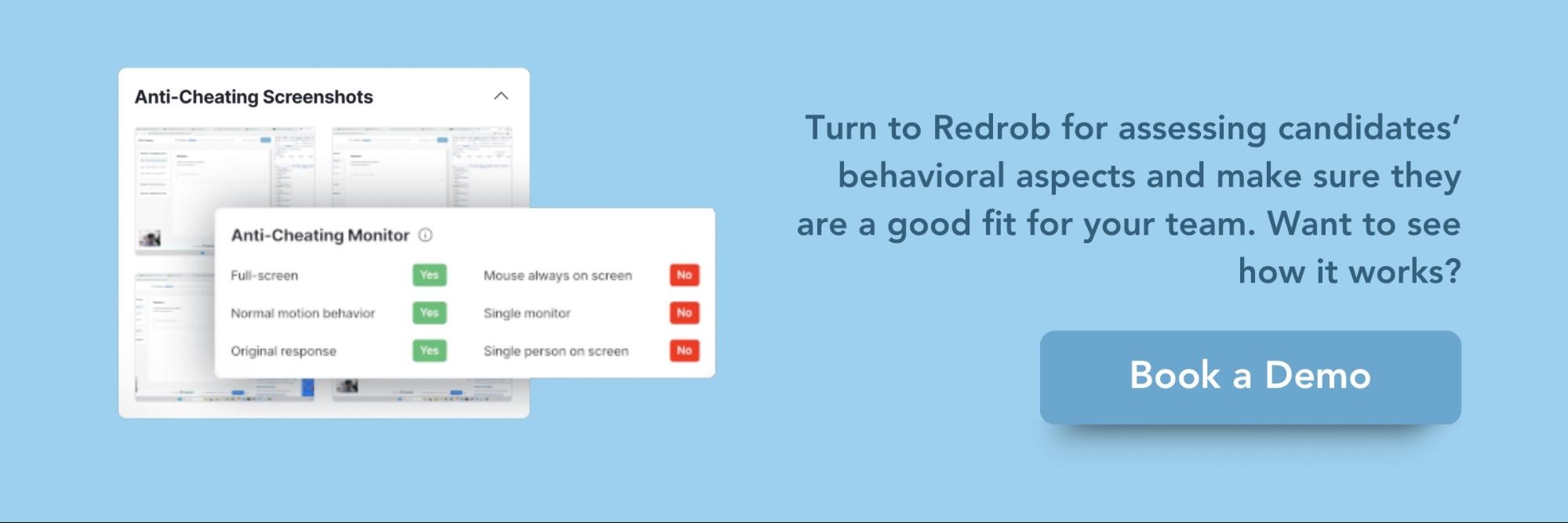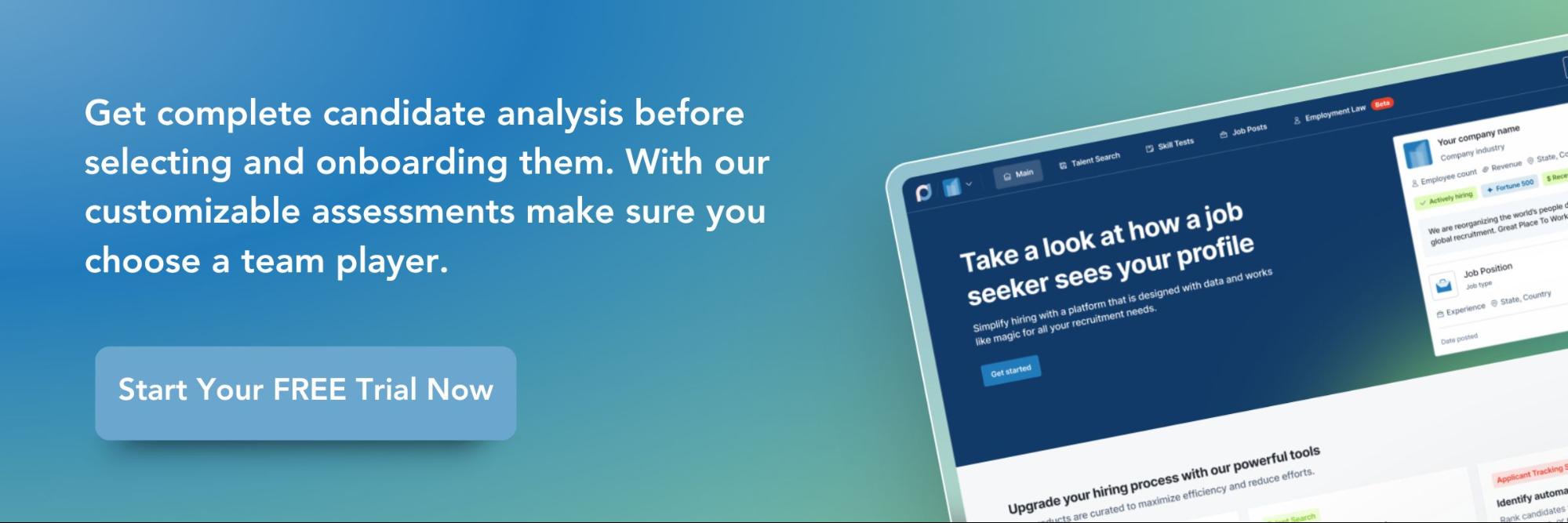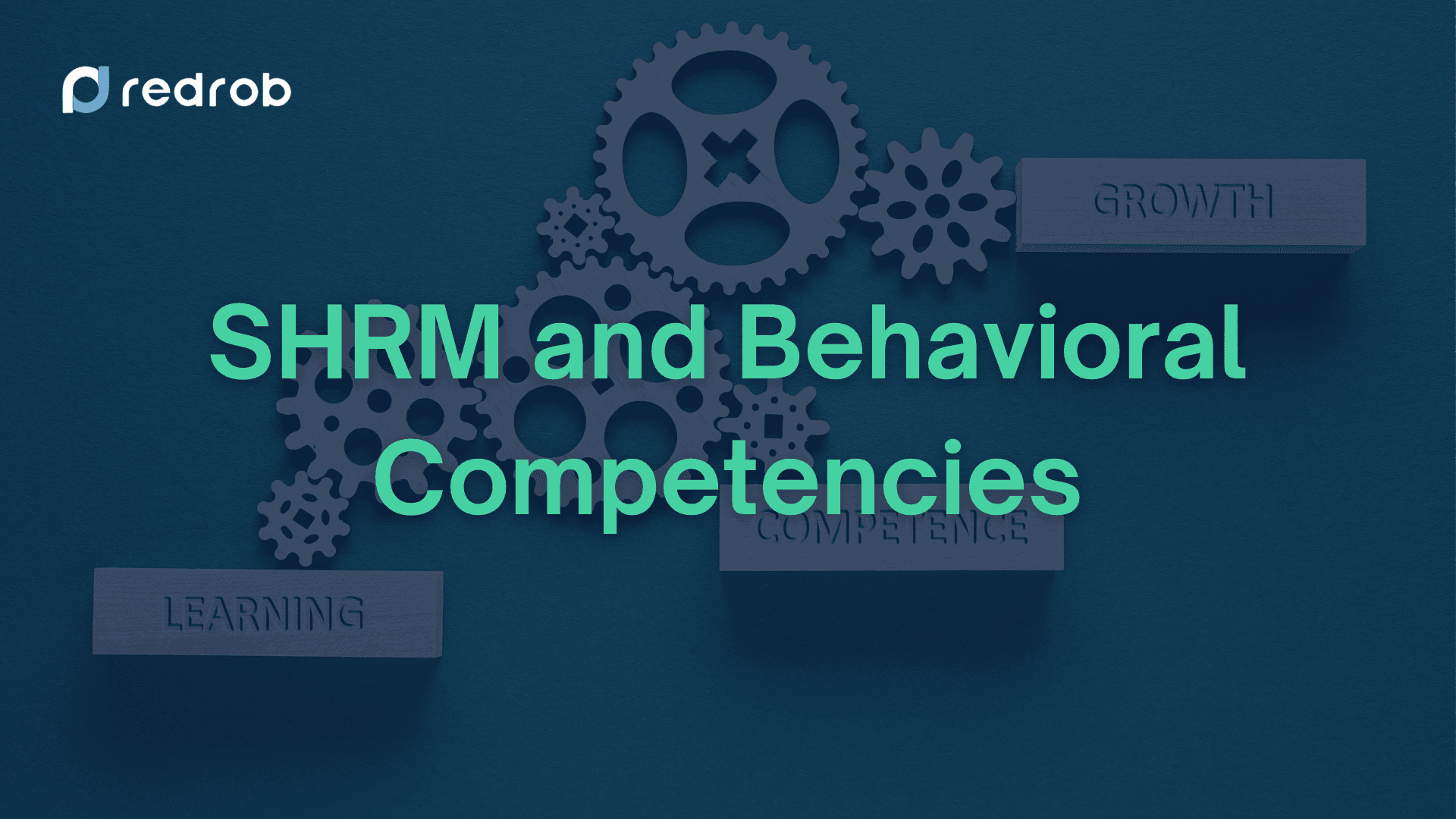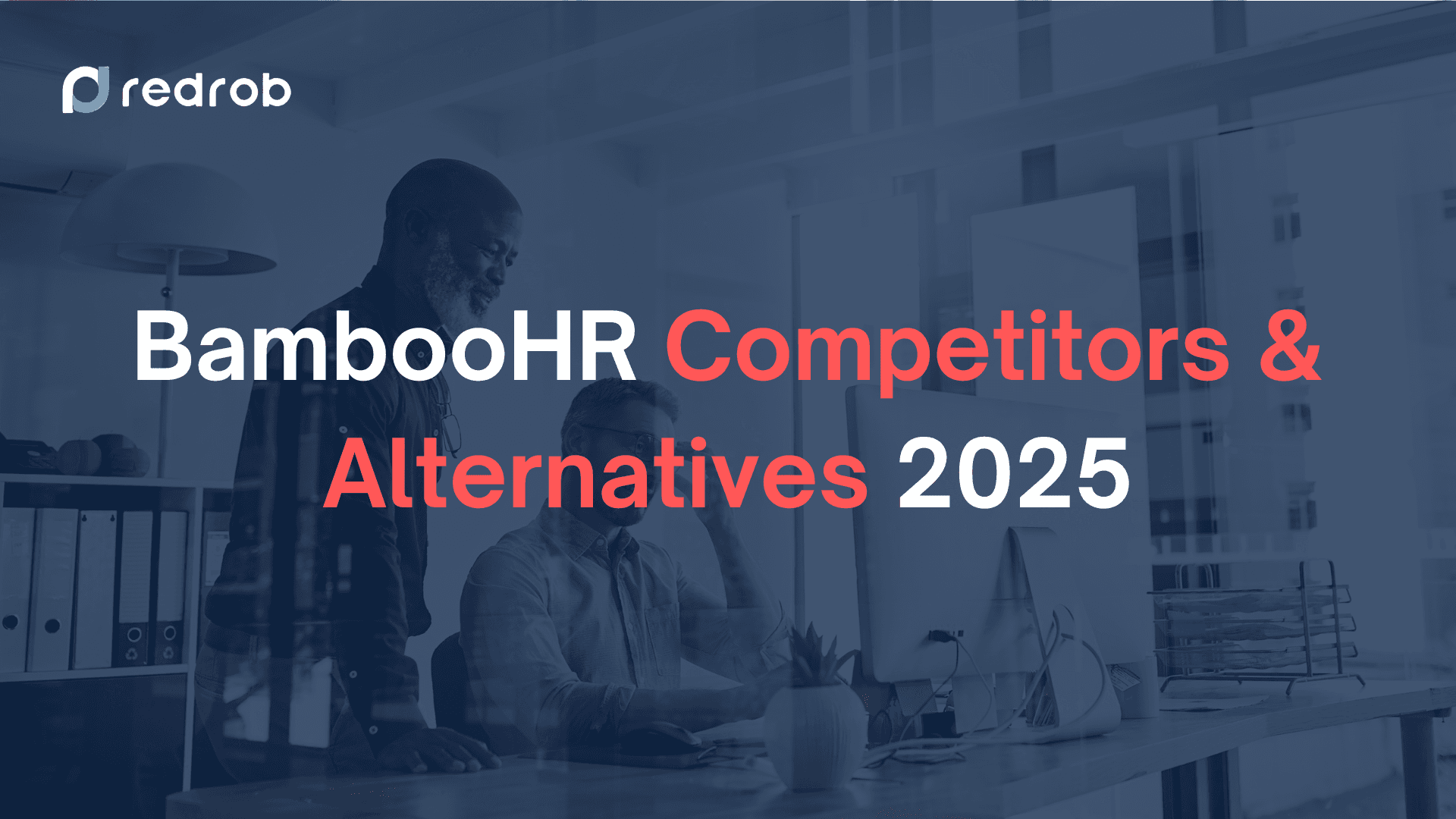Behavioral Competencies
7 mins read
•
Nov 11, 2024

Soumyata Singh
In HR, technical know-how is only part of the job. To truly excel, you need something more: the behavioral skills that set strong HR professionals apart. These “behavioral competencies SHRM” highlights are essential for managing people, handling conflicts, and driving positive change in the workplace.
Consider it—decisions that impact people’s lives, build trust, or shape company culture require insight and integrity. By honing these competencies, you improve your effectiveness and contribute to your organization’s success. Let’s explore the SHRM Competency Model and uncover the behavioral skills that help you lead with impact in any HR role.
Understanding SHRM and Behavioral Competencies
The Society for Human Resource Management (SHRM) is a leading global organization for HR professionals. SHRM offers resources, certifications, and a widely respected competency model. Its model focuses on the essential skills and knowledge HR professionals need.
Behavioral competencies are a core part of the SHRM framework. They help you perform effectively in different HR roles and situations. These competencies guide decision-making, solving problems, and communicating in the workplace.
Mastering "behavioral competencies SHRM" can elevate your HR career. By focusing on skills like critical evaluation and ethical practice, you enhance your ability to make informed, unbiased choices. Additionally, these competencies help you build stronger relationships and navigate complex workplace dynamics.
The SHRM Competency Model
The SHRM Competency Model serves as a practical roadmap for HR professionals. It aims to help you identify the skills essential to success in any HR role. The model outlines behavioral and technical competencies you can apply in various workplace situations.
The SHRM model focuses on nine competencies, from "behavioral competencies SHRM" to technical HR expertise. Key behavioral areas include relationship management, leadership, and business acumen. By mastering these, you improve how you assess situations, communicate, and handle conflicts.
This model also supports your professional growth. As you build on these competencies, you strengthen your role and credibility in the workplace. You gain skills to handle both people-centric and business-focused challenges. HR managers shared that competency training improved employee outcomes, making it a valuable investment for any HR team.
Next, we’ll dive into the core behavioral competencies that empower effective decision-making and leadership.
Core Behavioral Competencies in HR
Behavioral competencies in SHRM lay the foundation for success in HR. These core skills help you analyze information, make strategic decisions, and guide others. Let’s explore three key competencies: critical evaluation, business acumen, and leadership.
Critical Evaluation: Making Informed Decisions Through Analysis
Critical evaluation is about gathering data and assessing its value. This skill enables you to make well-informed choices and improve outcomes. For example, if employee turnover rises, you analyze exit surveys and identify common reasons. Studies show that data-driven companies are 23 times more likely to acquire customers, highlighting the value of this competency. With critical evaluation, you bring clarity to complex HR challenges.
Business Acumen: Strategic Application of Information
Business acumen helps you align HR strategies with business goals. You understand how HR impacts broader objectives, from productivity to profit. For instance, by analyzing team performance data, you can recommend training to close skill gaps. Many HR leaders say that understanding business operations boosts their credibility. You support decisions that benefit the company and employees through business acumen.
Leadership and Guiding Initiatives
Effective leadership means inspiring and guiding teams. It’s a vital part of behavioral competencies in SHRM. As a leader, you influence actions, resolve conflicts, and drive positive changes. Whether managing a recruitment campaign or launching an engagement program, your leadership builds trust. According to a survey, 81% of employees are more engaged when they feel their leaders listen to them. With strong leadership, you become a trusted resource in the organization.

Communication Skills in HR
Effective communication is at the heart of HR work. Your ability to express ideas and listen actively builds trust and keeps teams engaged. These skills are essential in developing behavioral competencies in SHRM.
Effective Verbal and Written Communication
Clear verbal and written communication allows you to share information accurately and efficiently. Whether writing an email or leading a team meeting, concise communication helps prevent misunderstandings. For instance, your choice of words in performance reviews can motivate employees and guide them toward growth. Clear communication improves employees’ performance, showing its impact on HR.
Importance of Active Listening and Persuasion
Active listening means fully understanding what others say before responding. It’s crucial in conflict resolution, as it helps employees feel valued. For example, active listening can reveal insights you may otherwise miss if a team member shares concerns. Persuasion is another essential skill that enables you to encourage action and promote positive changes. In fact, teams led by HR professionals skilled in persuasion often see higher engagement and productivity.
Next, we’ll look at how ethical practices and professional integrity build a foundation of trust in HR.
Ethical Practice and Professional Integrity
Ethics and integrity are foundational in HR. As an HR professional, you uphold core values and build trust. Adhering to these principles ensures fair treatment and strengthens company culture. Let’s explore how ethical standards and accountability play key roles in HR.
Adherence to Ethical Standards and Core Values
Staying committed to ethical standards is essential in HR. You follow strict guidelines when hiring, managing conflicts, or handling sensitive data. For example, keeping hiring decisions unbiased shows fairness and helps maintain credibility. According to one of the surveys, 56% of employees consider ethical values a priority when choosing an employer. By prioritizing "behavioral competencies SHRM" highlights, you create a respectful and transparent environment.
Promoting Integrity and Accountability
Integrity in HR means being honest and responsible. You hold yourself accountable and encourage the same in others. If a policy issue arises, taking responsibility builds trust with your team. Accountability also improves decision-making, leading to stronger employee relations. Most employees say they trust leaders who consistently demonstrate integrity.
Next, look at relationship management skills and how they support teamwork and networking in HR.
Relationship Management
Building solid relationships is essential in HR. Good relationships create trust and improve teamwork, making your role more effective. Let’s look at how you can develop and maintain connections and encourage collaboration.
Building and Maintaining Interpersonal Relationships
In HR, you regularly interact with employees, managers, and executives. Building solid relationships helps you address concerns and keep communication open. For example, maintaining regular check-ins with team leaders can uncover potential issues early. According to a SHRM report, 70% of HR professionals believe that strong relationships boost employee satisfaction. By focusing on "behavioral competencies SHRM" emphasizes, you create a supportive, engaged work environment.
Encouraging Teamwork and Networking
Teamwork is vital for a positive culture. By encouraging collaboration, you improve problem-solving and spark innovation. For instance, organizing cross-departmental projects fosters team connections and helps employees feel more united. Additionally, networking within HR circles keeps you updated on best practices and resources. HR professionals say networking improves their ability to find talent and enhance policies.

The following section will explore how global and cultural effectiveness enriches workplace diversity and inclusion.
Global and Cultural Effectiveness
When dealing with a global workforce, understanding cultural differences is essential. By embracing diversity, you create a more inclusive environment. How interacting with diverse viewpoints and promoting inclusivity can enhance your HR skills.
Interacting with Diverse Cultures and Viewpoints
Working with people from different backgrounds enriches the workplace. Embracing these differences helps you make more balanced decisions and understand unique perspectives. For example, when managing global teams, you respect cultural preferences in communication styles or work hours. Companies that value cultural awareness have better team dynamics. By focusing on "behavioral competencies SHRM" promotes, you make diversity an asset.
Promoting Inclusivity and Global Competencies
Promoting inclusivity means creating a sense of belonging for everyone. When employees feel valued, they perform better and stay engaged. Encourage inclusive practices like acknowledging cultural holidays or supporting diverse hiring. Research shows that inclusive teams make decisions 87% better and faster, driving efficiency. Developing global competencies makes you a more decisive HR leader in today’s interconnected world.
In the final section, we’ll explore the overall impact of mastering these HR behavioral competencies on organizational success.
Conclusion
Mastering HR behavioral competencies directly impacts your organization’s success. Developing skills like critical evaluation and cultural effectiveness creates a more effective, inclusive, and responsive workplace. Each competency strengthens your ability to manage people, improve processes, and support business goals.
The SHRM Competency Model plays a key role in guiding your growth. By emphasizing “behavioral competencies SHRM” recommends, you elevate both your proficiency and your strategic influence within the company. With SHRM’s support, you gain tools to navigate complex challenges confidently, making you an invaluable asset to your team and organization. We hope this blog gives you enough insights into it.



